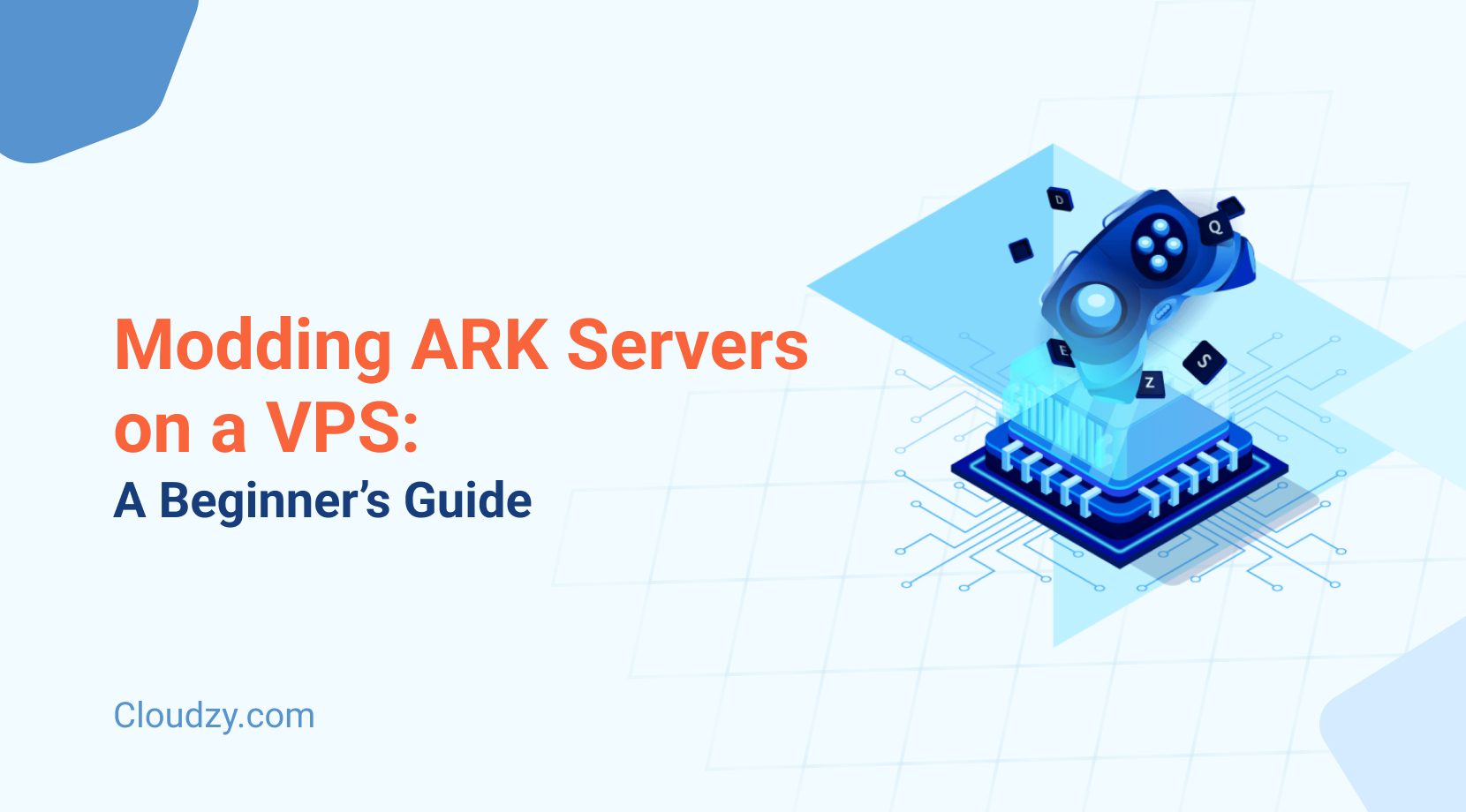In today’s tech-driven landscape, the term “cloud computing” has become a buzzword. But what exactly does it mean, and why should it matter to startups? To answer these questions, we have to start with a clear definition of cloud. Cloud computing, in simple terms, is like having your digital operations untethered from a physical server. It’s a game-changer, offering the freedom to access and manage your data, applications, and services from anywhere with an internet connection. No more shackles of on-premises hardware; the cloud offers flexibility, scalability, and efficiency like never before. Now, here’s where the rubber meets the road for startups. The choice of your cloud provider can be the difference between smooth sailing and turbulent waters. It directly impacts your cost efficiency, security, and overall performance. A well-chosen cloud for startups can propel your business forward, while a hasty decision can lead to setbacks. So, tag along as we talk about the features of the best cloud provider for startups.
Meeting the Unique Needs of Startups
As a startup embarks on its journey toward innovation and growth, the right cloud for startups choice becomes paramount. To make an informed decision, you need to understand the unique needs of startups in this digital age. Let’s delve deeper into things startups should consider when searching for the best cloud server for startups:
Scalability
Startups are dynamic creatures, and their resource needs can fluctuate rapidly. Cloud VPS providers offer scalable solutions, allowing you to seamlessly adjust your computing resources as your business evolves. Whether you’re experiencing rapid growth or a temporary surge in traffic, a good cloud for startups can scale up or down with ease.
Cost-Effectiveness
In the early stages of a startup every penny counts. So, as a startup owner, you should opt for a provider that offers the most cost-efficient cloud services for startups and optimize cost of cloud server based on your business needs. Best cloud hosting for startups offer pay-as-you-go models, where you only pay for the resources you use. This cost-efficient approach frees up valuable capital for other crucial aspects of your business.
Security and Compliance
If you want to keep dirty hands off of your data, you should ensure the security of your digital assets and compliance with industry regulations. Many cloud VPS providers implement robust security measures, including firewalls, encryption, and data backups. Make sure your chosen provider aligns with your security needs and compliance requirements to safeguard your startup’s integrity.
Ease of Use and Management
If you want to dedicate all your attention to growing your business, you need to work with a cloud for startups that offers a user-friendly interface and easy management tool. This way, you don’t have to spend precious time and resources on complex configurations and you can fully focus on other aspects of your startup.
Customer Support and Service Level Agreements (SLAs)
When issues arise, responsive customer support and well-defined SLAs are your safety net. Evaluate the quality of support provided by your cloud VPS provider and the guarantees they offer in their SLAs. This ensures you have assistance when you need it most and minimizes downtime.
Level of Customization
Every startup is unique, and your cloud VPS should cater to your specific requirements. Assess the level of customization your provider allows, from choosing server configurations to installing software. Tailoring your cloud environment to suit your startup’s needs can be a significant advantage.
Data Centers and Network Infrastructure
The physical backbone of your cloud VPS matters. Reliable data centers and a robust network infrastructure ensure high availability and low latency. Explore the locations and redundancy of data centers offered by your provider to guarantee seamless operations for your startup.
Overview of Popular Cloud Providers
Let’s take a closer look at some of the leading cloud providers that have been making waves in the industry. Each of these giants offers a unique set of services and features to cater to the diverse needs of startups. Let’s dive right in:
AWS (Amazon Web Services)
Amazon Web Services (AWS) is a heavyweight in the cloud computing arena. Known for its vast array of services, AWS provides startups with a robust infrastructure that includes computing power, storage, databases, and machine learning capabilities. Its global reach ensures your startup can scale and reach users across the globe. AWS offers a flexible PAYG model. However, understanding AWS’s pricing structure can be complex, and costs can add up if not carefully managed.
AWS Pros:
- Extensive service offerings
- Scalability and reliability
- Strong developer community
AWS Cons:
- Pricing complexity
- Learning curve for newcomers
We have a guide that introduces AWS EC2 and its alternatives. It can help you better understand Amazon’s services. We encourage you to check it out if you’re looking to gain more insight into AWS products.
Microsoft Azure
Microsoft Azure is another heavyweight contender, offering a wide range of cloud services and integration with Microsoft products. With a strong focus on hybrid cloud solutions, Azure can be an excellent choice for startups looking to blend on-premises and cloud resources. Azure’s pricing is competitive and transparent, making it easier for startups to budget. The “pay for what you use” model ensures cost efficiency. However, some advanced features may come at an additional cost.
Azure Pros:
- Seamless integration with Microsoft tools
- Hybrid cloud capabilities
- Strong security measures
Azure Cons:
- Complex interface for beginners
- Limited PaaS offerings compared to AWS
Google Cloud Platform (GCP)
Google Cloud Platform (GCP) is a cloud provider known for its cutting-edge technologies and data analytics tools. GCP’s data analytics capabilities make it a great choice for startups that use data-driven in their decision-making process. Besides these features, GCP offers competitive pricing and a transparent billing model. However, it may not be the most budget-friendly cloud for startups out there.
GCP Pros:
- Data analytics and machine learning expertise
- Strong network infrastructure
- Kubernetes integration
GCP Cons:
- Smaller service portfolio compared to AWS and Azure
- May not be the most cost-effective option for all startups
IBM Cloud
IBM Cloud emphasizes hybrid cloud and AI capabilities. It offers a range of cloud services along with IBM’s expertise in enterprise solutions. IBM Cloud provides flexible pricing options, including pay-as-you-go and reserved instances. While it can be cost-effective, some startups may find it less competitive than other major providers.
IBM Cloud Pros:
- Strong enterprise-grade features
- Hybrid cloud focus
- AI and machine learning capabilities
IBM Cloud Cons:
- Smaller market share
- May not be as developer-friendly as other platforms
Alibaba Cloud
Alibaba Cloud is a dominant force in the Asian market and is expanding its presence in the global market. It offers a wide range of cloud services, including AI and big data solutions. Alibaba Cloud provides competitive pricing and discounts for startups. It also offers cost-effective options that make it a suitable cloud for startups who are budget-conscious and care to reduce initial expenses.
Alibaba Cloud Pros:
- Strong presence in Asia
- Competitive pricing
- Diverse service offerings
Alibaba Cloud Cons:
- Smaller global presence compared to AWS and Azure
- Limited documentation in English
Niche and Specialized Cloud Providers
After covering the industry giants, it’s time to talk about niche and specialized cloud providers. These cloud for startups offer specialized plans that cater to specific needs. These providers can offer tons of advantages in bringing cloud computing for startups. Let’s take a closer look at a few of them:
DigitalOcean
DigitalOcean is known for its developer-friendly approach. However, it also offers cloud computing solutions tailored for startups and small businesses. DigitalOcean offers both pay-as-you-go and monthly plans. Startups can take advantage of two types of plans offered by DigitalOcean: scalable virtual private servers (Droplets) and managed databases.
For startups that have limited technical resources, DigitalOcean can be a life savor. DigitlOcean has a straightforward interface and extensive documentation which make it easy to use. It’s also popular among developers who prefer ease of use to other technical factors.
If you’re interested in learning more about DigitalOcean and how it stacks up against its competitors, check out our blog post where we’ve curated a comparison of the best DigitalOcean alternatives.
Heroku
Heroku is a platform-as-a-service (PaaS) provider known for its simplicity and ease of deployment. It abstracts infrastructure management, allowing startups to focus on building and deploying applications. Heroku supports multiple programming languages and frameworks. It offers a free tier with limited resources, making it accessible for early-stage startups. Pricing increases as your resource needs grow. The pay-as-you-go model is cost-effective for startups looking to scale gradually.
If you’re a startup looking to quickly deploy web applications without the hassle of server management, Heroku is one cloud option for your startup.
Vultr
Vultr is a cloud infrastructure provider that focuses on high-performance virtual private servers (VPS). It offers a global network of data centers and a straightforward approach to cloud hosting. Vultr provides competitive pricing with various plans based on your needs. It offers both standard and high-frequency compute options, and startups can benefit from its cost-effective VPS solutions.
Cloudzy
Cloudzy is a niche cloud provider known for its customization capabilities and tailored solutions. It specializes in meeting unique startup requirements and delivering top-notch resources and infrastructure. Cloudzy’s competitive advantage lies in its customization capabilities. Startups can tailor their cloud infrastructure precisely to their requirements, ensuring they have the right tools and resources for their unique journey.
Cloudzy offers competitive pricing, but what sets it apart is Cloudzy Sunrise program, which is specifically designed to help startups out. Startups can receive up to $5,000 in credits through this program, allowing them to access high-quality resources for free. The Sunrise plan also includes 48 hours free DevOps consultancy services. Cloudzy’s Sunrise program is a game-changer for startups. With the ability to customize services based on startup needs and the generous credits offered, it provides an exceptional opportunity for early-stage companies. The free DevOps consultancy services ensure startups receive expert guidance. This great offer is built on top-notch infrastructure and lots of advantageous features, including state-of-the-art data centers on 15 global locations, 99.95% uptime, zero latency, and 24/7 technical support.
Scaling With Cloud VPS; A Real Success Story
To better explain the opportunities that come with a cloud VPS, let’s review the story of a real business who was able to take the game to the next level by leveraging cloud.
Founded in 2008, Airbnb disrupted the traditional hospitality industry by allowing individuals to rent out their homes or rooms to travelers. As Airbnb grew, it faced several challenges with millions of users and hosts joining the platform. This rapid expansion posed significant challenges, particularly in handling the surge in traffic and maintaining service reliability. This serious challenge made managing their infrastructure complex and demanding.
To address these challenges, Airbnb made a strategic decision to move a significant portion of its infrastructure to the cloud. Cloud provided Airbnb with the scalability and flexibility needed to accommodate their growing user base and dynamic demand patterns. By leveraging cloud infrastructure and services, Airbnb gained the ability to scale its platform seamlessly.
Leveraging cloud VPS capabilities helped Airbnb in meeting the demands of its rapid growth. It also helped Airbnb to innovate and improve its platform. Airbnb’s story is a real-life example that shows the role of cloud VPS in empowering startups to scale, optimize costs, and drive innovation in the digital age.
Want a high-performance Cloud VPS? Get yours today and only pay for what you use with Cloudzy!
Get Started HereMaking the Decision
Choosing the best cloud provider for startups is a pivotal decision. To help you make an informed choice, we made a list of all the steps and things you need to consider:
1. Follow this handy checklist:
- Assess Your Startup’s Needs: Understand your business requirements, including scalability, budget, and technical expertise.
- Evaluate Service Offerings: Examine the range of services offered by potential cloud providers, considering your startup’s specific needs.
- Pricing Transparency: Ensure the provider’s pricing structure aligns with your budget, and you have a clear understanding of potential costs.
- Security and Compliance: Verify that the cloud provider offers robust security measures and complies with industry regulations relevant to your business.
- Scalability: Confirm the provider’s scalability options to accommodate growth and handle traffic fluctuations.
- Support and Community: Check the availability and quality of customer support and assess the presence of an active user community.
- Customization: Determine if the provider allows customization to tailor services to your startup’s unique requirements.
- Resource Monitoring: Look for tools that enable resource monitoring and optimization to control costs effectively.
- Data Center Locations: Assess the provider’s data center locations to ensure global coverage if needed.
2. Be aware of the potential pitfalls and how to avoid them:
- Underestimating Costs: Some startups may underestimate cloud costs. To avoid this, monitor resource usage and take advantage of cost management tools provided by your chosen cloud for startups.
- Neglecting Security: Ignoring security measures can be detrimental. Prioritize security best practices and regularly update your security protocols.
- Poor Resource Allocation: Mismanaging resources can lead to inefficiencies. Continuously monitor and optimize resource allocation to control expenses.
- Lack of Disaster Recovery Planning: Neglecting disaster recovery planning can be risky. Implement robust backup and recovery strategies to safeguard your data.
- Ignoring Compliance: Neglecting industry compliance can lead to legal issues. Ensure your chosen cloud provider complies with relevant regulations.
Conclusion
In wrapping up our journey to find the best cloud provider for startups, we reviewed all the important features you need to consider before making the final decision. Scalability, security, and resource optimization emerge as critical considerations to fuel growth while maintaining control over costs. And as a noteworthy addition, consider exploring Cloudzy, which stands out with its Sunrise program, offering up to $5,000 in value, allowing startups to access top-notch resources and infrastructure for free, coupled with invaluable free DevOps consultancy services. Customization based on unique requirements is at the core of Cloudzy’s mission, making it a compelling choice as a cloud for startups that are ready to harness the full potential of cloud computing to propel their ventures to new heights. So, take that first step today, and let Sunrise empower your startup’s success.
FAQ
What are the benefits of using cloud for startups?
Cloud services for startups offer numerous advantages, including scalability, cost-effectiveness, and flexibility. Startups can easily adjust resources to accommodate growth or fluctuating demand, pay only for what they use, and choose the best cloud hosting for startups that aligns with their unique needs.
How can I determine the best cloud provider for my startup?
Determining the best cloud provider for startups involves assessing factors like scalability, pricing transparency, security measures, and the provider’s ability to offer customization. Consider your startup’s specific requirements and technical expertise to make an informed choice that supports your growth.




